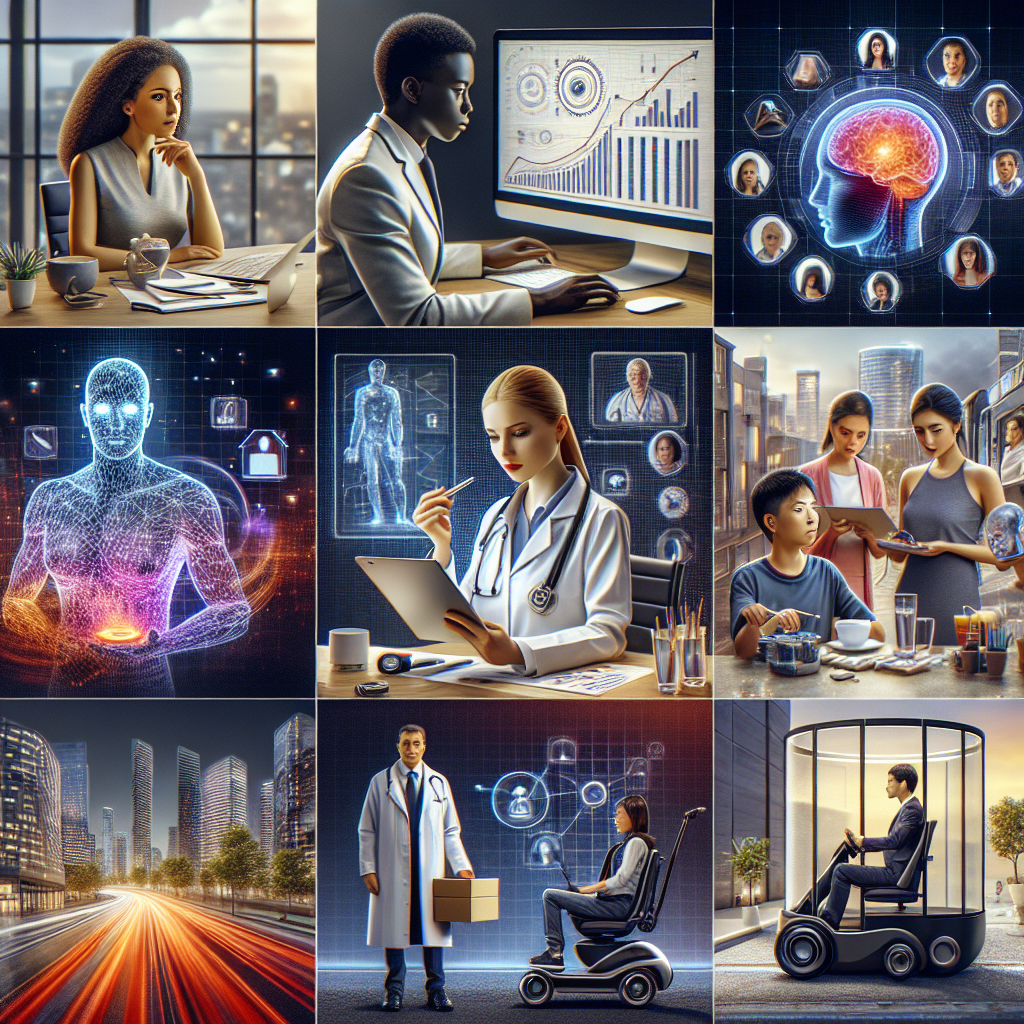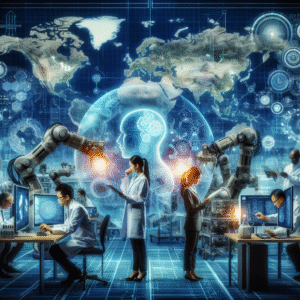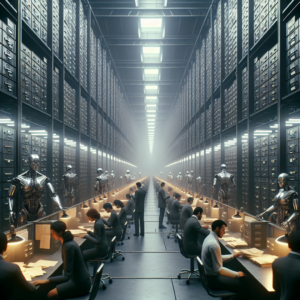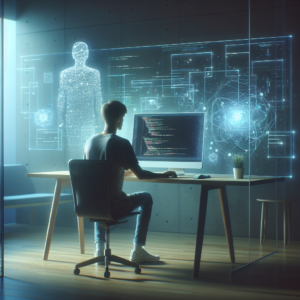Ranked: All the Things People Use AI for in 2025
In recent years, the integration of Artificial Intelligence (AI) into various sectors has surged, and predictions for its applications in 2025 are nothing short of astonishing. From healthcare to entertainment, AI is set to revolutionize how we live and work. In this blog post, we will explore the various ways AI is expected to be utilized by 2025, as outlined by Visual Capitalist.
1. Healthcare Innovations
AI is transforming the healthcare industry dramatically. By 2025, we can expect:
- Predictive Analytics: AI will analyze vast amounts of data from patient records to predict diseases before they manifest.
- Personalized Treatment: Machine learning algorithms will tailor treatment plans based on a patient’s genetic makeup and lifestyle choices.
- Robotic Surgery: AI-powered robots will assist surgeons, enhancing precision and reducing recovery times.
- Telemedicine: Virtual health consultations will be enhanced by AI to provide accurate diagnoses and treatment suggestions remotely.
With these applications, AI will not only improve patient outcomes but also reduce costs significantly.
2. Smart Homes and IoT
The concept of a smart home will become mainstream by 2025, thanks to AI. Home automation will be more than just a convenience; it will be a necessity. Key features will include:
- Energy Management: AI systems will optimize energy use based on occupancy and preferences.
- Security Systems: Advanced security solutions will utilize facial recognition and anomaly detection to keep homes safe.
- Voice Assistants: AI will improve the functionality of voice-activated assistants, enabling them to handle more complex tasks.
The integration of AI in smart homes will lead to increased comfort, security, and efficiency.
3. Education Tech
Education will also see a significant AI transformation by 2025. The use of AI in educational settings will include:
- Adaptive Learning: AI will offer personalized learning experiences based on individual student needs and learning paces.
- AI Tutors: Virtual tutors powered by AI will provide additional support to students in various subjects, ensuring no one falls behind.
- Administrative Tasks: AI will automate administrative tasks, freeing up educators to focus more on teaching and engaging with students.
As a result, the education sector will become more efficient and effective, catering to diverse learning styles.
4. Finance and Banking
The financial sector is ripe for AI disruption. By 2025, we can expect to see:
- Fraud Detection: AI algorithms will analyze transaction patterns to detect fraudulent activities in real-time.
- Automated Trading: Investment firms will utilize AI to make informed trading decisions based on market trends.
- Personal Finance Tools: AI-driven apps will help individuals manage their finances by suggesting saving strategies and budget plans.
These advancements will not only enhance security but also empower individuals with better financial management tools.
5. Transportation and Autonomous Vehicles
The future of transportation is closely tied to AI advancements. By 2025, AI will play a crucial role in:
- Autonomous Vehicles: Self-driving cars will become increasingly common, with AI systems ensuring safety and efficiency on the roads.
- Smart Traffic Management: AI will analyze traffic patterns to optimize traffic flow and reduce congestion in urban areas.
- Ride-Sharing Services: AI will enhance ride-sharing applications, improving user experience and reducing wait times.
These innovations will significantly alter how we navigate our environments, leading to safer and more efficient transportation options.
6. Marketing and Customer Engagement
The marketing landscape will undergo a radical transformation with AI by 2025. The key applications will include:
- Targeted Advertising: AI will analyze consumer behavior to deliver personalized ad experiences.
- Customer Service Automation: Chatbots powered by AI will provide 24/7 customer support, resolving issues promptly.
- Market Research: AI will streamline the process of data collection and analysis, providing businesses with actionable insights.
These advancements will enhance customer engagement and satisfaction, ultimately driving sales and brand loyalty.
7. Environmental Sustainability
AI will not only improve efficiency but also contribute to environmental sustainability by 2025. Key areas include:
- Energy Conservation: AI systems will optimize energy consumption in buildings and industries.
- Resource Management: AI will help manage natural resources more efficiently, reducing waste.
- Climate Modeling: Advanced AI models will provide insights into climate change trends, aiding in mitigation strategies.
By leveraging AI, we can work towards a more sustainable future while optimizing resource use.
8. Entertainment and Content Creation
In the entertainment industry, AI will revolutionize content creation and consumption. By 2025, we can anticipate:
- Content Recommendation: AI algorithms will provide personalized recommendations for movies, shows, and music.
- Automated Content Generation: AI tools will assist in creating scripts, music, and even art, pushing creative boundaries.
- Enhanced Gaming Experience: AI will create more immersive and adaptive gaming environments, responding to player actions in real-time.
These advancements will redefine how we consume and interact with entertainment.
Conclusion
As we look ahead to 2025, the potential uses of AI are vast and exciting. From healthcare innovations and smart homes to autonomous vehicles and personalized marketing, AI is poised to reshape nearly every aspect of our lives. Embracing these advancements will not only enhance efficiency and productivity but also lead to a more connected and sustainable future. As technology continues to evolve, it is imperative that we harness the power of AI responsibly and creatively, paving the way for a better tomorrow.



